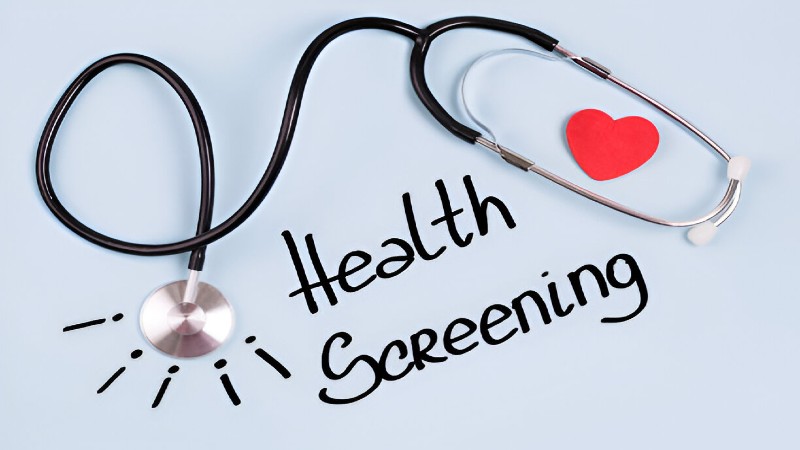
Preventive Health: Screenings and Checkups You Shouldn’t Skip
In a world where time is always tight, preventive health often falls to the bottom of the to-do list. Yet, screenings and checkups you shouldn’t skip could mean the difference between catching a disease early—or facing it at an advanced, less treatable stage. While many people wait until symptoms appear, routine screenings is the smarter, safer for long-term wellness.
Why Preventive Health Screenings Matter More Than Ever
Many life-threatening conditions—heart disease, diabetes, cancer—don’t announce their arrival. They develop silently, often showing symptoms only after irreversible damage is done.
Preventive screenings allow for:
- Early detection of silent or asymptomatic diseases
- Lower treatment costs and fewer complications
- Higher survival rates
- Personalized healthcare plans based on individual risk factors
According to the World Health Organization, up to 80% of heart disease, stroke, and type 2 diabetes is preventable with early interventions—many starting with routine checkups.
Essential Screenings You Shouldn’t Skip By Age
Let’s break it down clearly, so you know what to check and when. These recommendations are based on expert guidelines from the CDC, NHS, and UCLA Health.
In Your 30s
| Test | Frequency | Purpose |
| Blood Pressure | Every 2 years (yearly if elevated) | Detects hypertension—leading cause of stroke and heart attack |
| Cervical Cancer Screening | Every 3 years (ages 25–49) | Prevents cervical cancer via Pap test and/or HPV test |
| BMI & Weight Check | Annually | Maintains healthy weight, reduces risk for diabetes and cancer |
| Mental Health Screening | As needed | Early detection of anxiety, depression, and stress-related illness |
Pro Tip: Even if you feel healthy, your body may be harboring risks you can’t see. Screenings in your 30s set the stage for lifelong wellness.
In Your 40s
| Test | Frequency | Purpose |
| Cholesterol Test | Every 4–6 years (more if high risk) | Detects buildup of artery-blocking fats |
| Blood Sugar (HbA1c) | Every 3 years or as advised | Identifies prediabetes and type 2 diabetes early |
| Breast Cancer (Mammogram) | Starting at 40 (based on risk) | Early detection improves survival by 30% |
| Eye Exam | Every 2 years | Catches glaucoma, retinal damage, and vision changes |
In Your 50s
| Test | Frequency | Purpose |
| Colorectal Cancer (FIT/Colonoscopy) | Every 2 years (FIT), 10 years (colonoscopy) | Finds precancerous polyps early |
| Prostate Health (Men) | Starting at 50 (or earlier for high-risk men) | PSA blood test to detect prostate issues |
| Shingles Vaccine | 2-dose series starting at 50 | Reduces risk of shingles and complications |
| Cardiovascular Screening | As advised if overweight, sedentary, or family history | May include ECG, stress tests, advanced lipid panel |
Bold Stat: Screening for bowel cancer increases survival to over 90% if detected early (UK NHS).
Additional Screenings Not to Overlook
Dental Checkups
- Frequency: Every 6–12 months
- Why: Prevents gum disease, oral cancers, and systemic infections
Skin Exams
- Frequency: Monthly self-checks + doctor as needed
- Why: Early detection of skin cancer, especially melanoma
Bone Density (Women 65+, Men 70+)
- Test: DEXA scan
- Why: Assesses risk for osteoporosis and fractures
Screenings and Checkups You Shouldn’t Skip
| Age Group | Must-Have Screenings |
| 30s | BP check, BMI, Pap test, mental health |
| 40s | Cholesterol, blood sugar, mammogram, eye test |
| 50s | Colonoscopy/FIT, PSA (men), shingles vaccine, cardiovascular check |
| 65+ | Bone density, AAA scan (men), lung cancer screening (smokers) |
The Cost of Skipping Screenings
Skipping health screenings doesn’t just risk your well-being—it can drastically increase treatment costs, reduce quality of life, and in some cases, cost lives.
- A colonoscopy may cost $1,000–$2,000, but colon cancer treatment can exceed $100,000.
- Mammograms can detect cancer 1–3 years before symptoms arise—saving lives and minimizing treatment invasiveness.
- Hypertension and diabetes, when caught early, can often be managed with lifestyle changes alone, avoiding lifelong medication.
Approach to Preventive Health
What sets this approach apart? It’s not just a checklist—it’s a strategy for living longer and better. Think of preventive screenings as your body’s dashboard alerts. Ignoring the warning lights doesn’t make the problem disappear—it just hides it until it becomes more serious.
Here’s how to make it manageable:
- Book annual checkups during your birthday month—easy to remember.
- Use a digital health tracker or app to remind you of your test schedules.
- Ask for a personalized screening plan from your doctor based on your health and family history.
Conclusion
Incorporating screenings and checkups you shouldn’t skip into your yearly routine isn’t just smart—it’s life-saving. Whether you’re in your 30s building a health foundation, in your 40s watching for warning signs, or in your 50s actively defending against chronic disease, these simple tests offer powerful protection.
Don’t wait for symptoms to appear. Prevention is the most powerful form of medicine.Talk to your doctor today about the screenings that are right for you.
Frequently Asked Questions (FAQs)
What is preventive health and why is it important?
Preventive health focuses on regular screenings and lifestyle habits that help detect diseases early and prevent serious health complications.
Which screenings are recommended in your 30s?
In your 30s, key screenings include blood pressure, BMI, cervical cancer tests (for women), and mental health evaluations based on risk factors.
How often should I get a cholesterol test?
Cholesterol should be tested every 4–6 years starting at age 20. More frequent testing is needed if you have risk factors like obesity or family history.
At what age should colon cancer screening start?
Routine screening for colorectal cancer typically starts at age 45. People with higher risk, including African American adults, may need earlier testing.
Do men and women need different health checkups?
Yes. Women should get Pap smears and mammograms, while men may require prostate exams. Many screenings like blood pressure and diabetes apply to both.
What is included in a routine physical exam?
A routine physical often includes checks on vital signs, BMI, blood pressure, heart and lung function, and lifestyle-related health risks.
Can preventive screenings reduce healthcare costs?
Yes, early detection through screenings often leads to less invasive, lower-cost treatments and helps avoid expensive emergency care later.
Is mental health screening part of preventive care?
Absolutely. Regular mental health check-ins are vital, especially if you’re experiencing stress, anxiety, or mood changes that impact daily life.
How do I know which screenings I need?
Your doctor can help develop a personalized screening schedule based on your age, gender.












